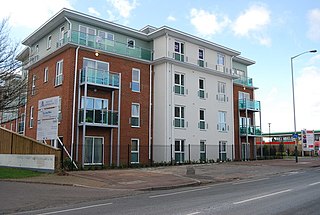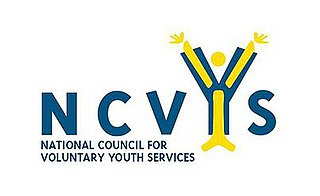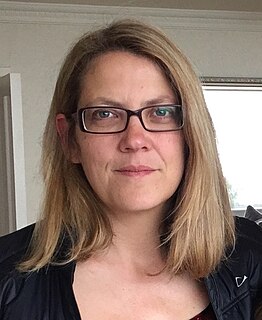
Cadw is the historic environment service of the Welsh Government and part of the Tourism and Culture group. Cadw works to protect the historic buildings and structures, the landscapes and heritage sites of Wales, so that the public can visit them, enjoy them and understand their significance. Cadw manages 127 state-owned properties and sites. It arranges events at its managed properties, provides lectures and teaching sessions, offers heritage walks and hosts an online shop. Members of the public can become members of Cadw to gain membership privileges.

In Ireland and the United Kingdom, housing associations are private, non-profit making organisations that provide low-cost "social housing" for people in need of a home. Any budget surplus is used to maintain existing housing and to help finance new homes and it cannot be used for personal benefit of directors or shareholders. Although independent, they are regulated by the state and commonly receive public funding. They are now the United Kingdom's major providers of new housing for rent, while many also run shared ownership schemes to help those who cannot afford to buy a home outright.

A charitable organization or charity is an organization whose primary objectives are philanthropy and social well-being.
A social enterprise is an organization that applies commercial strategies to maximize improvements in financial, social and environmental well-being. This may include maximizing social impact alongside profits for co-owners.
Action on Smoking and Health (ASH) is the name of a number of autonomous pressure groups (charities) in the anglosphere that seek to publicize the risks associated with tobacco smoking and campaign for greater restrictions on use and on cigarette and tobacco sales.
The United Kingdom is home to a widespread and diverse co-operative movement, with over 7000 registered co-operatives owned by 17 million individual members and which contribute £34bn a year to the British economy. Modern co-operation started with the Rochdale Pioneers' shop in the northern English town of Rochdale in 1844, though the history of co-operation in Britain can be traced back to before 1800. The British co-operative movement is most commonly associated with The Co-operative brand which has been adopted by several large consumers' co-operative societies; however, there are many thousands of registered co-operative businesses operating in the UK. Alongside these consumers' co-operatives, there exist many prominent agricultural co-operatives (621), co-operative housing providers (619), health and social care cooperatives (111), cooperative schools (834), retail co-operatives, co-operatively run community energy projects, football supporters' trusts, credit unions, and worker-owned businesses.
Wales Council for Voluntary Action (WCVA) is the national membership organisation for the third sector and volunteering in Wales. Its aim is to work towards 'A future where the third sector and volunteering thrive across Wales, improving wellbeing for all'.
Development trusts are organisations operating in the United Kingdom that are:
Community Energy Scotland is an independent Scottish charity established in 2008 that provides advice and financial support for renewable energy projects developed by community groups in Scotland. The stated aim of Community Energy Scotland is 'to build confidence, resilience and wealth at community level in Scotland through sustainable energy development'.

Emergency medical services in the United Kingdom provide emergency care to people with acute illness or injury and are predominantly provided free at the point of use by the four National Health Services (NHS) of England, Scotland, Wales, and Northern Ireland. Emergency care including ambulance and emergency department treatment is only free to UK residents and a charge may be made to those not entitled to free NHS care. The NHS commissions most emergency medical services through the 14 NHS organisations with ambulance responsibility across the UK.
Energy Saving Trust (EST) is a British organization devoted to promoting energy efficiency, energy conservation, and the sustainable use of energy, thereby reducing carbon dioxide emissions and helping to prevent man-made climate change. It was founded in the United Kingdom as a government-sponsored initiative in 1992, following the global Earth Summit.
A building control body is an organisation authorised to control building work that is subject to the Building Regulations in England and Wales (similar systems are provided in Northern Ireland, and in Scotland where the term 'building standards' is used. These regulations or standards are also known as building codes in other parts of the world.
Local People Leading (LPL) is an alliance of national networks and community groups in Scotland that has been created to campaign for a strong and independent community sector.
Historic England is an executive non-departmental public body of the British Government sponsored by the Department for Digital, Culture, Media and Sport. It is tasked with protecting the historic environment of England by preserving and listing historic buildings, scheduling ancient monuments, registering historic Parks and Gardens and by advising central and local government.
UK Community Foundations (UKCF) is a registered charity that leads a movement of community foundations committed to positive social change in the UK through the development of “community philanthropy”. Community philanthropy involves people from all parts of a community working together locally to use the financial and other resources available to them to improve others’ lives.

The National Council for Voluntary Youth Services (NCVYS) was a membership network of over 200 voluntary and community organisations, as well as local and regional networks, that work with and for young people across England. The organisation closed in 2016. For 80 years, NCVYS acted as an independent voice of the voluntary and community youth sector, working to inform and influence public policy, supporting members to improve the quality of their work, and also raising the profile of the voluntary and community sector's work with young people.

The Canal & River Trust (CRT), branded as Glandŵr Cymru in Wales, holds the guardianship of 2,000 miles of canals and rivers, together with reservoirs and a wide range of heritage buildings and structures, in England and Wales. Launched on 12 July 2012, the Trust took over the responsibilities of the state-owned British Waterways.

Making Music is a UK membership organisation for leisure-time music groups of all musical genres, representing over 200,000 musicians and promoters of all levels and experience. Making Music provides them with practical services, guidance, artistic development opportunities and a collective voice for advocacy.
Communities come together and set up community businesses to address challenges they face together.

Jess Steele, is the founder and director of Jericho Road Solutions and a community activist. Steele was a founder trustee of Hastings Pier & White Rock Trust which successfully campaigned to transfer the pier into community ownership and raised £14m for its renovation.







